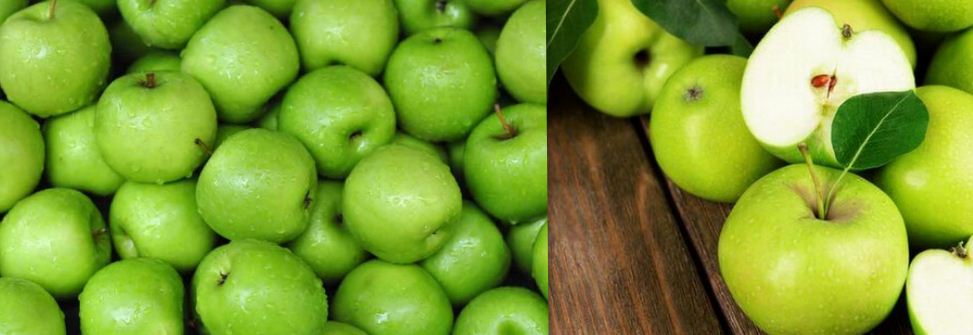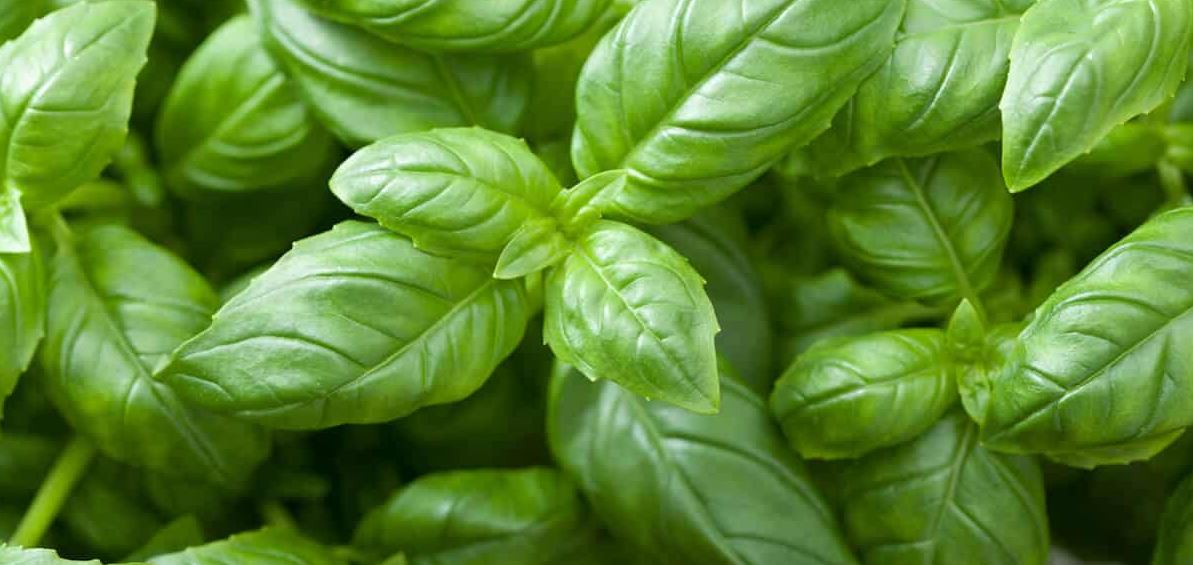Remarkable Health Benefits of Bitter Melon Leaves

Introduction: Bitter melon leaves, derived from the Momordica charantia plant, has long been cherished for their medicinal properties and culinary versatility.
Packed with essential nutrients and potent bioactive compounds, bitter melon leaves offer a myriad of health benefits. This comprehensive guide explores the remarkable advantages of bitter melon leaves, shedding light on their nutritional profile, therapeutic potential, and culinary applications.
Unveiling the 17 Remarkable Health Benefits of Bitter Melon Leaves: A Comprehensive Guide
This comprehensive guide outlines 17 benefits of bitter melon leaves, ranging from potential cancer-fighting properties to improving skin health and boosting immune function. Discover how this versatile and nutrient-packed plant can benefit your health and well-being.
1. Nutritional Powerhouse:
Bitter melon leaves are a valuable source of nutrients for the body, but their high vitamin A and B content makes them particularly interesting for the body. Vitamin A helps maintain healthy vision and boosts immunity against diseases like cancer, HIV/AIDS, and diabetes. This is a crucial nutrient for your skin, where it gets its protective power.
Bitter melons are also a good iron, calcium, and vitamin source. They can make sure your bones are healthy. They are also rich in potassium, zinc, phosphorus, sodium, and copper, which help the body. The bitterness of the leaves is an antioxidant that helps prevent cell damage. It also contains fiber and other nutrients needed for a healthy diet.
2. Antioxidant-rich Properties:
Bitter melon leaves are loaded with antioxidants such as flavonoids and phenolic compounds. These compounds help protect the body from oxidative stress, which can prevent the occurrence of cancers.
Antioxidants are a class of compounds that prevent oxidation, the chemical process in which unstable molecules are converted into more stable molecules. Antioxidants work by scavenging free radicals, preventing them from damaging the body's cells. The term antioxidant refers to any substance with the ability to protect cells against damage caused by oxidation.
3. Anti-Inflammatory Effects:
Bitter melon leaves can prevent chronic conditions such as diabetes, cancer, and heart disease. It's an antioxidant-rich plant that reduces inflammation and other processes that cause chronic diseases like heart disease, Alzheimer's disease, and cancer. This way, you also enjoy the benefits of caffeine-free herbal tea in your diet.
Regularly consuming these leaves may help alleviate inflammation-related conditions such as arthritis, asthma, and inflammatory bowel disease.
4. Immune System Booster:
Bitter melon leaves have been a common culinary fruit used for medicinal purposes for centuries in Chinese medicine. The leaves contain certain chemicals that stimulate immune responses, which may be beneficial in fighting off certain diseases and infections.
5. Liver Health Support:
Bitter melon leaves have hepatoprotective properties, which aid in detoxifying and regenerating liver cells. Studies suggest this fruit has impressive health benefits, even though it is not sweet.
Bitter melon is a fruit with a high concentration of antioxidants and phytonutrients. This leaf has traditionally been used as a remedy for the symptoms of chronic hepatitis, but it seems that the supplement is ineffective in people with healthy livers.
Liver Detoxification:
The liver is crucial for filtering the blood, eliminating toxins and waste, as well as producing bile, which aids in digestion. When the liver is unhealthy, it tends to store excess fat, suffer from inflammation, and show signs of decreased function.
However, many natural remedies can help support your liver and increase its health levels. They help remove toxins from the body, support liver function, and aid in liver detoxification processes. One such remedy is bitter melon leaves.
6. Antimicrobial and Antiviral Properties:
Bitter melon leaves have a wide range of potential health benefits. They may help prevent cancer, diabetes, and cardiovascular diseases. The leaves contain bioactive compounds such as alkaloids, anthraquinones, flavonoids, and phenolic acids that exhibit antimicrobial and antiviral activities against various pathogens.
Bitter melon leaves contain cucurbitacin E, which can kill pathogenic bacteria and fungi such as E. coli, salmonella, and candida. They can be used in natural remedies to treat skin infections, parasites, wounds, and fungal conditions like athlete's foot.
Bitter melon leaves also remedy many ailments, including pneumonia, stomach ulcers, and diarrhea. These leaves also exhibit antimicrobial and antiviral activities against MRSA, HIV, H1N1, and influenza.
7. Respiratory Health Promotion:
The leaves of the bitter melon have been used as a remedy for cough, asthma, and other respiratory ailments. Researchers have found evidence that bitter melon leaves have been shown to help prevent respiratory infections.
Their consumption may help alleviate respiratory conditions such as asthma, bronchitis, and allergies, supporting clear breathing and overall lung function.
8. Digestive Aid:
Bitter melon leaves release a lot of cellulose and fiber, making them able to break down food in the digestive tract. They help people with constipation, stomach ulcers, and diarrhea.
They stimulate the production of digestive enzymes, improving digestion, and indigestion, reducing bloating, and alleviating constipation.
9. Skin Health Enhancement:
In addition to being a low-calorie food and a powerful anti-aging agent, bitter melon leaves offer numerous health benefits. Due to their rich antioxidant content, they contribute to healthy skin and protect against acne and wrinkles.
They help combat oxidative stress, promote a youthful complexion, and may aid in managing skin conditions like acne, eczema, and psoriasis.
10. Blood Sugar Regulation:
Bitter melon leaves have been traditionally used in various countries to help regulate blood sugar levels. This is because of their ability to lower blood glucose and insulin levels. This plant has been found to have powerful anti-diabetic qualities, which include significantly reducing blood sugar levels and preventing the development of diabetes.
They contain compounds that mimic the action of insulin, facilitating glucose uptake by cells and aiding in the management of diabetes.
11. Cardiovascular Health Support:
Regarding cardiovascular health, bitter melon leaves' antioxidant, and bioactive compounds help lower blood pressure. This is because when these compounds bind to free radicals, they stop them from causing damage.
They help lower cholesterol levels, reduce blood pressure, and promote healthy blood vessel function, reducing the risk of heart disease. Bitter melon leaves also have the potential to reduce total cholesterol levels by up to 20%.
12. Anti-Cancer Potential:
Bitter melon leaves have been found to possess anti-cancer properties. Recently, a study has shown that a vegetable called "bitter melon" can be potentially more effective than chemotherapy in treating cancer. Plants are a great source of antioxidants and vitamins A and C. Bitter melon is also a great source of these nutrients.
Certain compounds have shown potential in inhibiting the growth of cancer cells and inducing apoptosis (cell death) in various types of cancer.
13. Bone Health Promotion:
Bitter melon leaves are rich in calcium and other minerals, bitter melon, and can be cooked and used as a vegetable. One of the benefits of these leaves is that they help combat osteoporosis. They also can help maintain strong and healthy bones. Regular consumption of bitter melon may help prevent osteoporosis and reduce the risk of fractures.
14. Anti-Aging Effects:
The antioxidant content of bitter melon leaves helps combat free radicals and oxidative stress, which are significant contributors to premature aging. You may be familiar with antioxidants from fruits and vegetables, which can help control the signs of wrinkles, aging, and discoloration.
Including bitter melon leaves in your diet may help promote youthful skin and slow aging.
15. Eye Health Enhancement:
Bitter melon leaves are a nutritious addition to your diet. Bitter melon is rich in nutrients like Vitamin C and Vitamin A. They help with eye health and protect against cataracts, so it's an appealing choice for anyone who wants to reduce their risk.
16. Anti-Obesity Effects:
Bitter melon leaves have been studied for their potential anti-obesity effects. These leaves are high in antioxidants that help protect the body from free radical damage, obesity, and other health issues.
They may aid in weight management by reducing body fat accumulation, suppressing appetite, and enhancing metabolism.
17. Mood and Mental Well-being:
Bitter melon leaves have been used traditionally in herbal remedies to relieve symptoms of depression and anxiety. According to recent findings, bitter melon leaves contain a high concentration of chemicals known as salidroside and Momordica charantia.
The leaves contain certain compounds that may help alleviate symptoms of depression and improve overall mental well-being.
How can bitter melon leaves be prepared and consumed?
They are commonly used in Asian and African cuisines, particularly stir-fries, curries, soups, and stews. Proper preparation techniques help balance the bitterness, allowing their distinct taste to shine. The anger of the leaves makes them a perfect substitute for spinach or kale. Bitter melon is considered a healthy fruit that can be eaten year-round. Depending on the region, this tasty, sweet fruit is also called bitter gourd or melon.
1. Stir-fry: Bitter melon leaves can be stir-fried with garlic and soy sauce to make a delicious side dish. Try heating some oil in a pan, add the minced garlic, and then add the bitter melon leaves. Do this cooking for a few minutes until they are wilted, and then add soy sauce to taste.
2. Soup: Bitter melon leaf soup is famous in many Asian countries. To make the soup, boil the leaves with chicken or vegetable broth and add sliced tomatoes, onions, and garlic—season with salt and pepper to taste.
3. Salad: Bitter melon leaves can be used in salads in the same way you would use any other leafy green. Wash and chop the leaves, then mix them with vegetables such as cucumber, tomato, and carrot.
4. Juice: Bitter melon leaves can also be juiced for health benefits. Try blending the leaves with water and strain the mixture to remove any solids. If desired, you can add some honey or lemon juice to sweeten the liquid.
It's important to note that bitter melon leaves taste bitter, so it's best to use smaller amounts first and gradually increase the dose as you get used to the taste. Additionally, pregnant women should avoid consuming bitter melon.
Bitter Melon Leaf Tea:
Bitter melon leaf tea is a popular beverage known for its health benefits. The leaves are an ingredient in many dishes and drinks, such as salads and soups. This tea also has a variety of uses for medicinal purposes, such as aiding digestion, fighting inflammation, and relieving stress.
Many people enjoy drinking plants and leaves, which harness health benefits by steeping them in hot water. Try this at home by adding some dried, bitter melon leaves to your drink and seeing how it turns out.
Medicinal Uses of Bitter Melon Leaves
Bitter melon leaves have traditionally been used to treat diseases such as diabetes, piles, cholera, respiratory ailments, and skin eruptions. It has also been included in Ayurvedic medicines for centuries. Bitter melon leaves can be eaten raw or cooked.
The leaves possess anti-hyperglycemic, anti-diabetic, antioxidant, anthelmintic, emetic, antimicrobial, anti-hepatotoxic, purgative, antiviral, and anti-ulcerogenic properties.
Side effects associated with consuming bitter melon leaves
Yes, consuming bitter melon leaves may have some side effects. Common side effects include stomach pain, diarrhea, vomiting, and headache. Bitter melon leaves may also interact with certain medications you may be using.
It will be wise to discuss with your doctor before consuming them if you are on any medications. Additionally, pregnant women should avoid consuming bitter melon leaves as they may cause uterine contractions. Overall, drinking bitter melon leaves in moderation is essential, and consult a healthcare professional if you experience any adverse side effects.
Precautions and Considerations:
Bitter melon is a common household plant often used in salads, soups, and juices. While bitter melon leaves offer numerous health benefits, it's essential to exercise caution before you eat these leaves. For individuals taking certain medications or with specific health conditions, the potential for side effects can be high and should be considered before consumption.
Consulting with a healthcare professional is advisable before incorporating bitter melon leaves into your diet.
Scientific findings were done on the health benefits of bitter melon leaves.
Scientific research has shown that bitter melon leaves have numerous health benefits. A current analysis published in the Journal of Ethnopharmacology found that bitter melon leaves lowered blood glucose levels in rats with diabetes. Several studies have demonstrated that bitter melon leaves possess anti-diabetic properties and can help regulate blood sugar levels, making them a potential treatment for type 2 diabetes.
Bitter melon leaves also have anti-inflammatory properties, which can help minimize inflammation and protect against chronic diseases such as cancer and heart disease. A study published in the International Journal of Molecular Sciences found that bitter melon leaves had anti-inflammatory effects in human cell lines and animal models.
In addition, bitter melon leaves have also been discovered to have sizable antimicrobial properties, which can seriously affect bacterial and fungal infections. Provings in the Journal of Ethnopharmacology found that bitter melon leaves had antimicrobial activity against several strains of bacteria.
Overall, bitter melon leaves have a variety of health benefits, including anti-diabetic, anti-inflammatory, and antimicrobial properties. It will take a while to fully study their potential benefits and how they can be used in medicine.
How do bitter melon leaves compare to other leafy greens regarding health benefits?
Bitter melon leaves have a distinct taste and are known for their numerous health benefits. Compared to other leafy greens, bitter melon leaves have a higher nutritional value and are packed with essential vitamins and minerals.
Bitter melon leaves comprise antioxidants, which can help protect against cell damage and oxidative stress. Bitter melon leaves are full of vitamin C, which can result in a more positive effect on the immune system and protect against disease. This healthy leaf is also rich in fiber, potassium, and iron, which can help regulate blood pressure and improve digestion. anyone
In addition to these health benefits, bitter melon leaves were proven to have anti-inflammatory properties, which do assist in reducing inflammation and swelling in the body. They have also been linked to improved blood sugar control, making them an excellent option for those with diabetes.
Bitter melon leaves are a nutritious and beneficial addition to any diet. While they are not well known as other leafy greens, they are worth considering for their unique taste and numerous health benefits.
Conclusion:
Bitter melon leaves offer many healthy options, considering their digestion to reduce the risk of chronic diseases. Incorporating bitter melon leaves into your daily meal plan may improve your health and well-being. This comprehensive guide provides valuable information to help you make informed decisions about incorporating bitter melon leaves into your diet and lifestyle.




